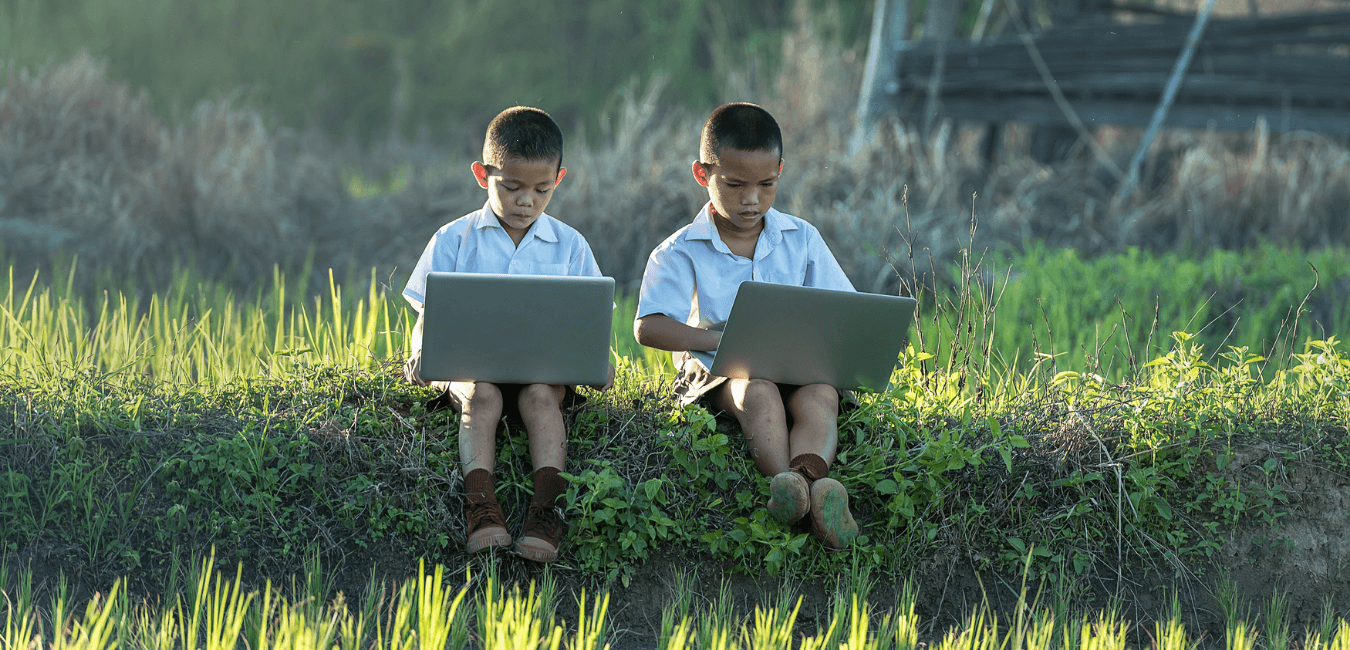NHRG #3: Boys & Girls Division on Distance Learning (Part 2)
OVERVIEW:
In commemoration of March 16, Kosen-rufu Day, the Young Successors Group (Student Division, High School Division, and Boys & Girls Division) challenged themselves as they launch the “New Human Revolution Generation” (NHRG), where they tackle pressing issues that we are facing today in the effort to realize peace and happiness.
The NHRG provides a platform for the youth where they can freely share their ideas, give new and different perspectives, offer innovative solutions, and empower others to take action and overcome powerlessness.

NHRG: Distance Learning (Part 1):
Part 1 of NHRG's 3rd installment is published in the May 2021 Issue of Pag-Asa which features the result of a survey conducted to the Boys and Girls Division members about the efficiency and their experience on Distance Education. It also include an interview with Mr. Castor Iduria, a teacher and asst. registrar, and selected guidance from Ikeda Sensei.
NHRG: Distance Learning (Part 2):
IN A PROFESSIONAL PERSPECTIVE:
In continuation of that installment, we have also conducted an interview with Mr. Rolf Peter S. Delos Santos, a teacher and Subject Area Coordinator for Araling Panlipunan to share his insights and experience about Distance Education.

The current situation posits a great challenge in all the stakeholders in the educational system, may it be in private or public.
One of the greatest challenges for the learners specially for public school is “reliable” connectivity. We cannot deny the fact that here in our country internet connectivity is one of the problems.
In a private school setting students were fortunate to have a reliable access to internet connection but still some experience inconveniences, aside from this problem one major problem encountered is the amount of time student spend in their online classes. There is no substantial study on how many hours should students allocate for their online learning.
In terms of mode of delivery almost all schools in the Philippines implemented a blended approach of synchronous (real-time) and asynchronous, this will help to balance the screen time not compromising the necessary competency that the learners should master at the end of the school year.
The effectiveness of remote learning also depends on many factors. We cannot generalize that the entire online learning is not effective since some of the students were happy about it while some are having a hard time to cope up.
In these trying times it’s a must that each school must implement a humanistic approach in education. Teachers must ensure that they will deliver the curriculum in a pragmatic manner emphasizing the real-world application rather than pure knowledge and theory. We are altogether facing the pandemic, we should be extra caring and understanding, let us not add to the burdens of our learners rather let us be a beacon of hope for them.
Though this is something catastrophic embedded in our history, we should always remember there is HOPE.
"Hope transforms pessimism into optimism. Hope is invincible. Hope changes everything. It changes winter into summer, darkness into dawn, descent into ascent, barrenness into creativity, agony into joy. Hope is the sun. It is light. It is passion. It is the fundamental force for life’s blossoming." (Daisaku Ikeda)
BUDDHIST POINT OF VIEW / IKEDA SENSEI'S GUIDANCE:
Editorial Committee Representative: Some of our junior and high school division members say that though they want to do their best, they just can't feel motivated.
President Ikeda: That's true for everyone! [Laughter] But wanting to do your best is in itself a very admirable thing.
Even the world-renowned historian Arnold J. Toynbee (1889-1975), with whom I held a dialogue, said that if he waited until he felt like doing his research, he'd never accomplish anything. He, therefore, made it a practice to sit down at his desk at a set time each day and start working, whether he felt like it or not.
If you get into the habit of studying, you will naturally feel motivated to study. You'll find the process of learning interesting and come to appreciate the importance of effort. I hope you'll all do your best to get into the habit of studying and don't give up until you do.
ECR: It's important for us to ask ourselves why we're studying and what the purpose of learning is, isn't it?
You presented Soka University with the motto, "For what purpose should one cultivate wisdom? May you always ask yourself this question."
President Ikeda: I hope you will continue to ask yourselves the purpose of your study and learning as long as you live.
If you're only studying for yourself, eventually you will hit a dead end. But when you have the larger purpose of studying for the sake of others, for society, and for the world, studying becomes fun. And in the process, you build yourself into a great human being, too.
In 1995, I visited Nepal, the country where Shakyamuni Buddha was born. After speaking at Tribuvhan University and completing other engagements, I attended an SGI-Nepal general meeting, where I was welcomed by five young girls dressed in scarlet native costumes and wearing gold ornaments in their hair.
Later, with the warm encouragement of their parents, these young girls went on to apply themselves diligently to their studies. They were determined to become capable people themselves so that they could help foster many others in the future. They aspired to become leaders who could play a positive role in society for the happiness and welfare of the people. Though they experienced various setbacks along the way, they persevered, because they believed in themselves and knew that their parents were behind them 100 percent. Today, 17 years later (2012), they are well advanced on the path of learning and social contribution. They are a great source of pride and inspiration to their parents and fellow members in Nepal, and many future division members are following in their footsteps.
The more you study, the greater your dreams expand. You become more capable and accomplished, and are able to help others. You can bring smiles to people's face and impart joy. You end up creating a wonderful environment around you.
(Dialogue for the Future, How to Protect the Environment)
Teachers and students should not be in opposing positions. By rights, they are partners walking the path of learning together.
(Excerpts from The New Human Revolution Vol. 14, Chapter)
One important purpose of elementary education is to help children acquire good habits that will serve as the foundation for the rest of their lives.
***
At the heart of education must be a correct view of human life and existence.
***
In the value-creating educational philosophy of Tsunesaburo Makiguchi, the purpose of education is the happiness of children and its main preoccupation is how to ensure that children can live happy lives.
Makiguchi defines a happy life as one “in which value is fully attained and actualized.” In other words, he believed that a happy existence lies in each individual developing their infinite creativity and leading a life filled with the joy of value creation.
***
The aim of education is not just to impart knowledge, but to help students gain the means to think for themselves and put the knowledge they acquire to positive use.
***
I have always regarded the younger generation as the leaders of the future, showing them respect and fostering them earnestly. I believe this is the essential attitude we need to have in educating others. Let's raise capable individuals. Everyone possesses brilliant potential. Education is the only hope for the future.
***
What is most important for humanity’s future? I have always believed that it is not economics or politics, but education.
***
Education cannot take place without helping the students who are struggling the most. This is the path of humanity.
***
Education progresses through teachers’ passion and their ongoing efforts to enhance their teaching abilities.
***
The most important quality for educators is to genuinely love children.
***
Education must help children grow as human beings. If all you care about are external forms and making the performance perfect, the substance will be lost. That’s dangerous.
(Excerpts from The New Human Revolution Vol. 27, Young Shoots Chapter)
